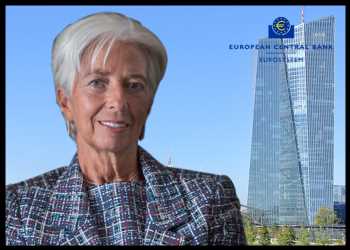ECB's Lagarde Says Eurozone Economy To Remain Weak In Near Term
European Central Bank President Christine Lagarde said on Thursday that euro area economic activity is set to remain sluggish in the near term and the unemployment could rise further in the face of slower job creation, as policymakers decided to continue hiking interest rates in a steady manner.
Earlier on Thursday, the ECB Governing Council raised its key interest rates by 50 basis points, in line with expectations, and signaled that policymakers plan to repeat the move in March, when they will evaluate the future path of policy rates.
Citing the modest 0.1 percent GDP growth in the euro area in the fourth quarter of 2022, Lagarde said, “While above the December Eurosystem staff projections, this outcome means that economic activity has slowed markedly since mid-2022 and we expect it to stay weak in the near term.”
Easing in supply bottlenecks, continued post-pandemic reopening and stability in gas supply supports businesses. Purchasing power could recover on the decline in energy prices and rising wages, thus boosting consumption.
“Overall, the economy has proved more resilient than expected and should recover over the coming quarters,” the ECB chief said in the introductory statement to her post-decision press conference.
Read more: Eurozone Investment Outlook Bleak
Addressing concerns that inflationary pressures could surge again on the unwinding of fiscal stimulus measures that were aimed to help the public with heavy energy bills, Lagarde stressed that the government support measures should be temporary, targeted and tailored to preserving incentives to consume less energy.
She urged governments to start rolling back such support measures promptly and in a concerted manner, as the energy crisis has become less acute.
“Any such measures falling short of these principles are likely to drive up medium-term inflationary pressures, which would call for a stronger monetary policy response,” Lagarde warned.
Price pressures remain strong, partly because high energy costs are spreading throughout the economy, the ECB president said.
Risks to the outlook for both growth and inflation have become more balanced, Lagarde said.
Source: Read Full Article

